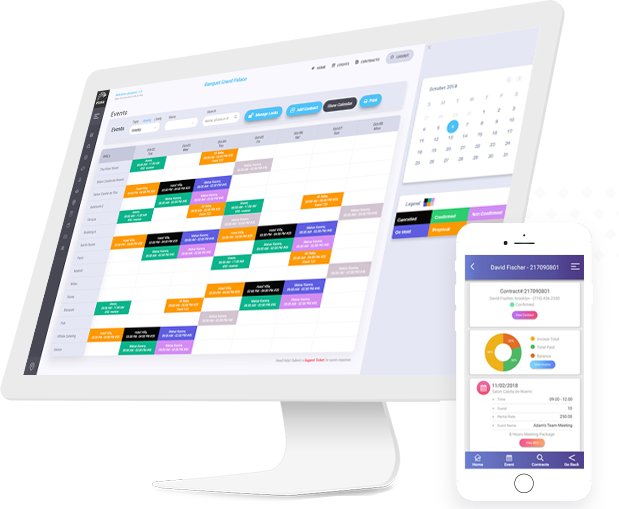With AI opening up new possibilities and Mobile applications becoming an integral part of our everyday life, it becomes crucial to understand what lies ahead. From intelligent apps to more efficient development procedures, Open AI is changing in ways we never would have imagined.
What if there's a possibility for a mobile application that really knows you. What would it be like if an app seemed to understand you better than you understand yourself? Offering up its recommendations, on what you might like, figuring out what you might need— even before you ask and recommending to you the ideal music that fits perfectly for your current mood, respond to your inquiries with ease, and figure out what you need even before you ask.
Well, this far off dream is now evolving into an emerging promise thanks to Open AI transforming the entire industry. With Open AI the future of mobile app development is rapidly evolving, with it being a key force driving this transformative change. So what does this mean precisely for mobile application development? What groundbreaking advancements might be just around the corner?
If you’re really curious to know about the future implications of OpenAI especially for a web app, you have come to the right place.
Curious to know more? You are at the right place. Let's dive in deeper.
What OpenAI Means for the Future of Mobile App Development
OpenAI’s impact on mobile app development is nothing short of revolutionary. As a result, open AI has caused quite the stir in a number of industries and are opening up possibilities that previously were unheard-of, for mobile application innovation as they get more advanced. Open AI contributes to this interesting change, from improving user experiences to streamlining development processes.
Enhanced User Experiences
When it comes to user experience improvement, Open AI on mobile App development has one of the most visible effects.
Having progressively incorporated AI-powered features, mobile apps now include voice assistants that are now capable of understanding natural language, offering responses that feel remarkably human. Not only this, Open AI’s advanced algorithms are also infused with chatbots that can learn, evolve, handle complex queries and genuinely be helpful. Thus resulting in enhanced user experience as well as reduced human customer agents, thereby cutting the operational costs for business. Having incorporated features that can analyze user experience, apps can now offer highly personalized content and recommendation. This kind of customization doesn’t just make apps more relevant—it actually provides users with more personalisation. Take the most known examples of Netflix and Spotify. On the basis of what you have watched or listened to before, they use AI to suggest similar movies, shows, and music, creating an entertainment experience that feels tailor-made just for you.
Enhanced Development Efficiency
Open AI isn’t just changing how we use mobile apps; it’s also transforming how they’re developed. Traditional development methods can be time-consuming, but AI tools are streamlining these processes and making development more efficient.
Code Generation: Think about having an AI buddy that helps you write your codes not only faster but also more efficiently. Allowing developers to cut down on repetitive tasks, open AI’s code generation capabilities are doing just that and are helping to focus on creating innovative features instead.
Automated Testing: Having to test an app can be a real botheration. But with AI here to lighten the load, data sets, algorithms and audits can be monitored and improved with correct outputs . Automated testing tools powered by AI are identifying bugs and issues quicker and more accurately than ever before, ensuring that apps are of the highest quality.
Predictive Analytics: Imagine having a simple way to predict user behavior and future trends. With AI's predictive analytics, something similar can be provided which uses data analysis to predict user needs and wants. This helps developers design more pertinent and interesting apps.
Innovative App Features Through AI
As Open AI continues to evolve, we can expect a surge of AI-driven innovations in mobile app features. These advancements will push the boundaries of
what is possible and open up new possibilities for developers and users alike.
Augmented Reality (AR) Integration: AR is becoming increasingly popular in mobile apps, and AI is enhancing its capabilities. By combining AR with AI, developers can create more immersive and interactive experiences. For example, AI can help in real-time object recognition and scene understanding, allowing AR apps to provide more accurate and engaging experiences. This technology is already being used in apps for gaming, shopping, and education.
Emotion Recognition: AI-powered emotion recognition technology is gaining traction in mobile apps. This technology can analyze users' facial expressions, voice tone, and other cues to determine their emotional state. By integrating emotion recognition into apps, developers can create more responsive and empathetic user interactions, enhancing overall user satisfaction.
Contextual Awareness: AI is enabling apps to become more contextually aware. By understanding the context in which an app is used—such as the user's location, activity, and preferences—AI can provide more relevant and timely information. For instance, a travel app can use contextual awareness to offer personalized recommendations for nearby attractions or dining options based on the user's current location and interests.
Exploring the Future of Mobile Apps with Open AI
When we step into the future, it’s clear that Open AI’s impact on Mobile App Development is not just here to stay—it’s going to redefine the game. We’re standing at the threshold of an era where innovation doesn’t just happen; it accelerates at a pace that’s as exhilarating as it is promising.
Advanced AI Integration: Imagine apps that don’t just respond but understand. We’re talking about a future where AI isn’t just smart—it’s intuitive. Imagine natural language processing that feels like you’re having a conversation, or image recognition so accurate that it can distinguish between a sunset and the golden hour glow on your friend’s face. These are huge leaps that will make your apps smarter, more responsive, and unbelievably fit to what you need.
Enhanced Security: Security isn’t just a feature anymore—it’s a necessity. AI is set to revolutionize app security, offering not just protection but preemptive defense. Think of AI-driven threat detection as a vigilant guard, always learning, adapting, and staying one step ahead of cyber threats. Your data? It’s not just secure; it’s safeguarded by intelligence that never sleeps.
Greater Accessibility: One of AI’s most exciting potentials lies in breaking down barriers. Future apps will be more inclusive, thanks to AI-powered speech recognition and adaptive interfaces. Whether it’s assisting someone with a disability or simply making the user experience smoother for everyone, AI is poised to make technology more accessible to all.
Continuous Learning and Adaptation: The days of static apps are numbered. Tomorrow’s apps will evolve with you, learning from every interaction to offer an experience that’s not just personalized, but dynamic. AI will enable apps to fine-tune themselves, ensuring they stay relevant, engaging, and perfectly attuned to your preferences over time.
Navigating the Challenges Ahead
Of course, with great power comes great responsibility. Right? Because, as AI becomes more integral to Mobile App Development, we can’t ignore the challenges that lie ahead. These aren’t just technical hurdles; they’re ethical considerations that demand our attention.
Data Privacy: In an age where data is gold, the way we handle it must be nothing short of meticulous. AI relies on vast amounts of data, and with that comes the responsibility to protect it. Developers need to embed robust privacy measures into every app, ensuring that user data isn’t just collected—it’s respected and safeguarded.
Ethical Implications: AI brings with it a host of ethical questions, from potential misuse to its impact on jobs. These aren’t issues to gloss over; they require deliberate action. Developers and tech companies alike must establish clear ethical guidelines to ensure that AI is used responsibly, in ways that benefit society rather than harm it.
Bias and Fairness: AI algorithms can be a double-edged sword—they’re powerful, but they can also introduce biases if not carefully managed. It’s crucial to involve diverse teams in development and to actively monitor these systems to ensure they’re fair and unbiased, creating equitable experiences for every user.
Conclusion
The fusion of Open AI with Mobile App Development is paving the way for a future overflowing with potential. With Open AI,not just user experiences are upgraded the apps are completely re imagined, designed, created, and improved. The path ahead is rich with opportunities for groundbreaking innovation and with AI advancing rapidly, our only limit is how far we dare to dream.
We’re standing at the start of something remarkable in Mobile App Development. With Open AI leading the charge, the future is not only bright but boundless. As developers and visionaries, we’re in a unique position to push the limits of what’s possible, crafting apps that don’t just fulfill needs but anticipate them. The adventure is just beginning, and the possibilities are as expansive as our imagination.









.jpg )







Leave a comment